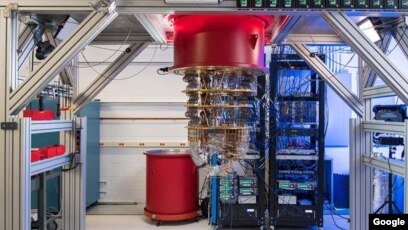"Breakthrough in Quantum Computing: A New Era of Superfast Processing"

A recent breakthrough in quantum computing is set to revolutionize the way we think about computing power and speed. For years, quantum computing has been a subject of intense research and experimentation, with scientists working to overcome various technical hurdles that limit its practical application. However, a new discovery by a team of researchers has paved the way for a significant leap forward in the development of quantum computers, promising the potential for superfast processing capabilities that far exceed the limits of classical computing.
At the heart of this breakthrough is the improvement of quantum bits, or qubits, which are the fundamental units of information in quantum computing. Unlike traditional bits that can only represent either a 0 or a 1, qubits can exist in a superposition of states, allowing them to represent both 0 and 1 simultaneously. This unique property of quantum mechanics enables quantum computers to process massive amounts of data in parallel, making them exponentially faster than classical computers for certain tasks.
The new development involves a major advancement in the stability and coherence of qubits. In the past, qubits were highly sensitive to external influences such as temperature fluctuations, electromagnetic radiation, and even slight vibrations. These disturbances would cause the qubits to lose their quantum state, leading to errors in calculations and limiting the effectiveness of quantum computers. The breakthrough is in the creation of more stable qubits, which can maintain their quantum state for longer periods of time, reducing the error rate and making quantum computers much more reliable for complex calculations.
The implications of this breakthrough are vast. One of the most exciting potential applications is in the field of artificial intelligence (AI). With quantum computing, AI algorithms could be processed much faster, leading to advancements in machine learning, data analysis, and even solving problems that are currently considered intractable. For instance, quantum computers could help optimize supply chains, improve medical diagnostics, and even simulate complex chemical reactions to accelerate drug discovery.
In addition, this new era of quantum computing could have a profound impact on cryptography. Quantum computers are capable of breaking many of the encryption systems that are currently used to secure online data. While this presents a challenge to cybersecurity, it also offers the potential to develop new encryption techniques that are more secure and resistant to quantum attacks.
As we stand on the brink of this quantum revolution, the implications for industries ranging from healthcare to finance, transportation to telecommunications, are immense. While quantum computers are still in their early stages of development, the recent breakthrough offers a glimpse into a future where the limits of classical computing are no longer a constraint. This new era of superfast processing is poised to transform virtually every aspect of modern life.
A recent breakthrough in quantum computing is set to revolutionize the way we think about computing power and speed. For years, quantum computing has been a subject of intense research and experimentation, with scientists working to overcome various technical hurdles that limit its practical application. However, a new discovery by a team of researchers has paved the way for a significant leap forward in the development of quantum computers, promising the potential for superfast processing capabilities that far exceed the limits of classical computing.
At the heart of this breakthrough is the improvement of quantum bits, or qubits, which are the fundamental units of information in quantum computing. Unlike traditional bits that can only represent either a 0 or a 1, qubits can exist in a superposition of states, allowing them to represent both 0 and 1 simultaneously. This unique property of quantum mechanics enables quantum computers to process massive amounts of data in parallel, making them exponentially faster than classical computers for certain tasks.
The new development involves a major advancement in the stability and coherence of qubits. In the past, qubits were highly sensitive to external influences such as temperature fluctuations, electromagnetic radiation, and even slight vibrations. These disturbances would cause the qubits to lose their quantum state, leading to errors in calculations and limiting the effectiveness of quantum computers. The breakthrough is in the creation of more stable qubits, which can maintain their quantum state for longer periods of time, reducing the error rate and making quantum computers much more reliable for complex calculations.
The implications of this breakthrough are vast. One of the most exciting potential applications is in the field of artificial intelligence (AI). With quantum computing, AI algorithms could be processed much faster, leading to advancements in machine learning, data analysis, and even solving problems that are currently considered intractable. For instance, quantum computers could help optimize supply chains, improve medical diagnostics, and even simulate complex chemical reactions to accelerate drug discovery.
In addition, this new era of quantum computing could have a profound impact on cryptography. Quantum computers are capable of breaking many of the encryption systems that are currently used to secure online data. While this presents a challenge to cybersecurity, it also offers the potential to develop new encryption techniques that are more secure and resistant to quantum attacks.
As we stand on the brink of this quantum revolution, the implications for industries ranging from healthcare to finance, transportation to telecommunications, are immense. While quantum computers are still in their early stages of development, the recent breakthrough offers a glimpse into a future where the limits of classical computing are no longer a constraint. This new era of superfast processing is poised to transform virtually every aspect of modern life.
